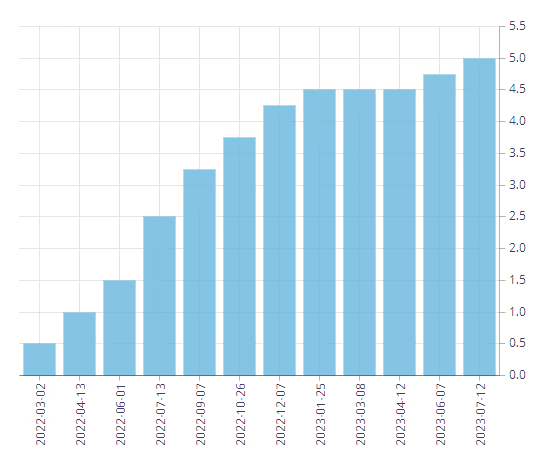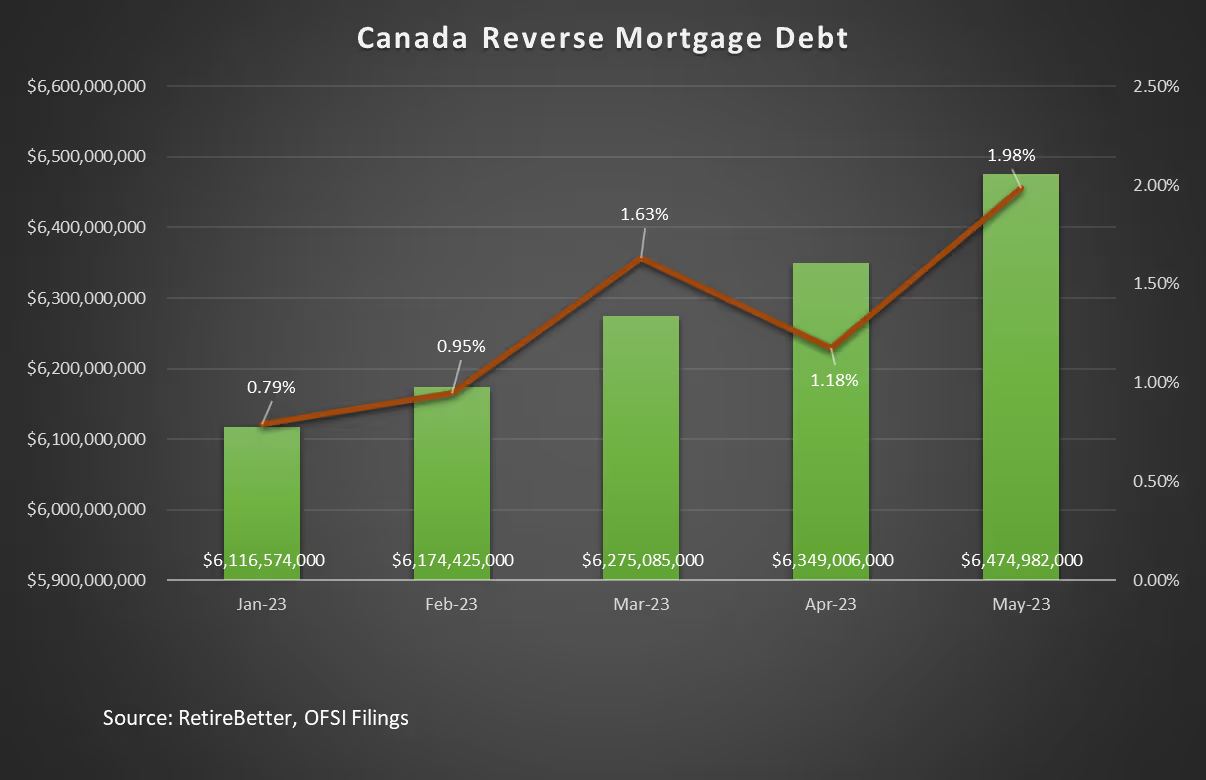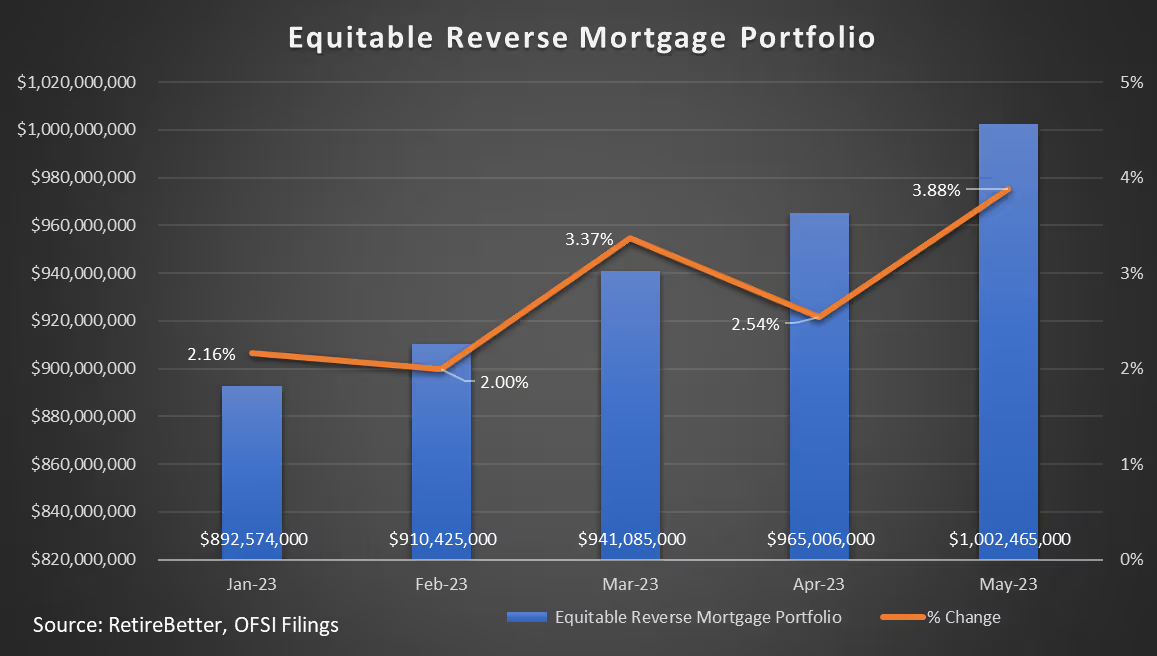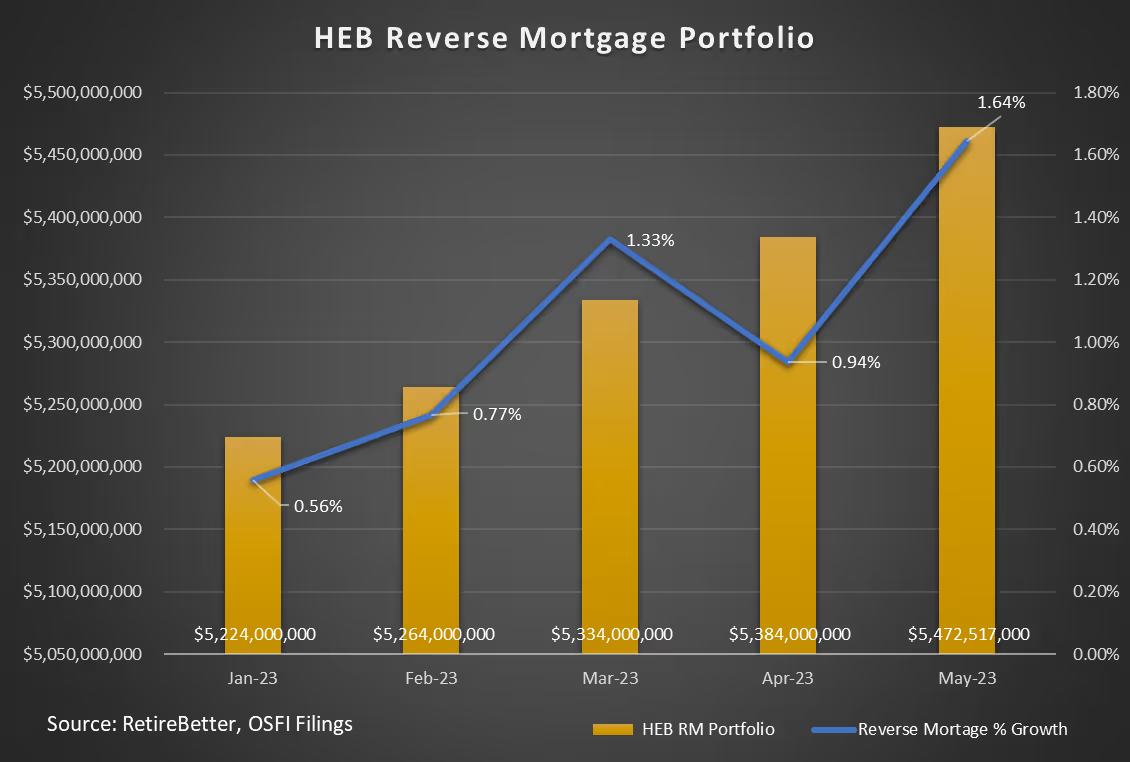On July 12, 2023, the Bank of Canada increased its overnight rate by 0.25%, bringing its policy rate to 5%. This was the 10th increase in the rate since March 2022, as the Bank of Canada continued in its fight to bring inflation down in Canada.

Since the Bank of Canada overnight rate affects reverse mortgage rates (among other things), we thought it would be interesting to look at how the reverse mortgage market is performing so far in 2023.
Canadian Reverse Mortgage Performance 2023
While more Canadians over the age of 55 are taking reverse mortgages than ever before, the reverse mortgage market observed a drop in its growth rate from 1.63% to 1.18% in April 2023.
At the time, we thought this drop in growth was due to the impact of higher mortgage rates in the market, again fueled by the Bank of Canada’s tightening of the overall market. Was the reverse mortgage party over, we wondered?

Turns out we were wrong, as the overall reverse mortgage rebounded strongly in May 2023 and grew by 1.98% to $6.474 Billion.
According to Ajay Singh, Managing Director at RetireBetter, this increase could be explained by the build up of pressures on Canadian homeowners, especially retired homeowners on fixed pension income.
“Every day costs of living have steadily increased while the Bank of Canada continues to increase its rate to fight inflation. Homeowners need to adjust their lives in order to manage. If you are 55 or older, and own your own home with enough equity, a reverse mortgage starts becoming an attractive option.”
Even though reverse mortgage interest rates have jumped from their lows during the Covid-19 pandemic, homeowners have not completely rejected the reverse mortgage option since interest rates for traditional mortgage and home equity lines of credit have also jumped.
These higher interest rates with traditional mortgages and HELOCs are unintentionally driving retired homeowners towards reverse mortgages, said Singh, who explained, “If you cannot qualify for regular mortgage or a home equity line of credit, then you apply for a reverse mortgage since it does not have any minimum income requirements, does not require monthly payments to be made and the loan amount does not need to be repaid until the borrower dies.”
Singh added these reverse mortgage features are attractive to homeowners who are 55 or older since the cashflow savings allow them to pay for other daily expenses instead of making a mortgage payment.
Equitable Bank Reverse Mortgage Performance 2023
Equitable Bank (EQ) topped $1 Billion in outstanding reverse mortgages for the first time and had a strong monthly growth of 3.88%.

EQ’s strong monthly growth can be explained by Equitable Bank’s continued strategy to price its reverse mortgages lower than its competitor, HomeEquity Bank. According to Singh, this popularity is creating delays in processing times with the Bank. “We’re seeing a 7-10 day delay in getting mortgage approvals from them, clearly they are backlogged.”
CHIP Reverse Mortgage Performance 2023
Despite the strong performance by EQ, HomeEquity Bank continues to dominate the reverse mortgage market in Canada.
HomeEquity sold more than $88 Million CHIP Reverse Mortgages in May 2023, which was a 1.64% increase in its portfolio.

This 1.64% monthly growth rate puts the CHIP reverse mortgage lender on track to match its record 2022 sales total of $1 Billion.
Singh praised the bank selling the CHIP reverse mortgage saying, “Even though Equitable Bank is performing well, the CHIP reverse mortgage dominates almost 85% of the total Canadian reverse mortgage market. And their growth rate has bounced back strongly.”
Looking ahead in 2023
If the reverse mortgage boom in 2021 and 2022 was explained by the record low interest rates and strong real estate market, then it seems as if the current reverse mortgage market has found a different foundation to build upon in 2023.
In Singh’s opinion, older homeowners with sufficient equity in their primary residence are choosing reverse mortgages as a strategy to cope with the Bank of Canada’s inflation fighting policy and its impact on the cost of living, consumer prices and mortgage rates.
Based on this explanation, the current reverse mortgage market in Canada may challenge its record setting 2022 performance after all.











